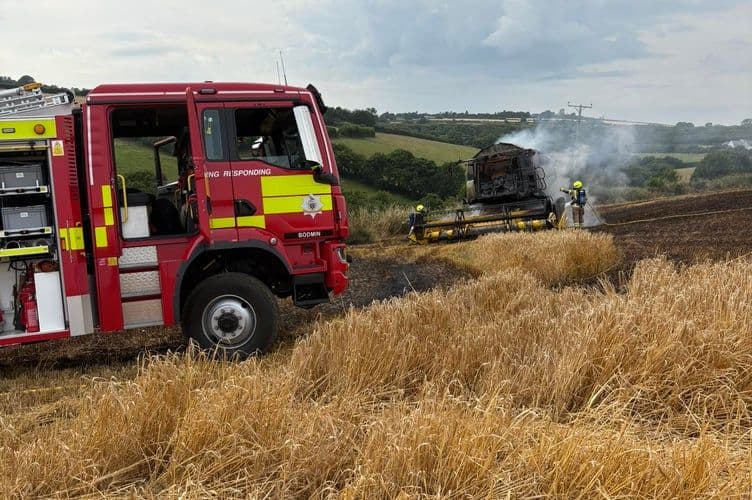
🔥 How to Prevent Combine Harvester Fires: In-Season & Post-Season Tips
As any experienced farmer knows, the combine harvester is the workhorse of the harvest season — but it's also one of the biggest fire risks on the farm. Dry crops, fine dust, and hot engines are a dangerous mix. Preventing fires starts with awareness and ends with thorough maintenance — both during harvest and after it's over.
Here’s how to reduce fire risk and protect your equipment year-round.
🌾 In-Season Fire Prevention: Keep It Clean and Cool
Daily Cleaning is Non-Negotiable
During harvest, dust, crop residue, and chaff build up fast. Use a leaf blower or air compressor to clean hot zones like:
Engine compartments
Exhaust systems
Bearings and belts
Under shields and around moving parts
Check for Hot Spots
Use an infrared thermometer or thermal imaging camera at the end of each day to scan for unusually hot components. These are potential ignition points.
Inspect Belts, Bearings, and Electrical Connections
Worn-out belts can slip and generate heat. Bearings can seize. Loose wires or frayed connections may arc and spark. Check and fix issues immediately.
Carry Fire Suppression Tools
Always have a fully charged fire extinguisher on board, and consider an automatic suppression system if harvesting in high-risk conditions.
🧹 Post-Season: Deep Clean to Deter Fire and Rodents
Once harvest is wrapped up, it's tempting to park the combine and move on — but post-season maintenance is just as critical.
Thoroughly Clean Inside and Out
Don’t just blow off the surface. Open up shields, access panels, and compartments. Remove chaff, dust, and grain trapped in tight spots — especially around electrical components and engine parts.
Why It Matters: Dust Today, Fire Tomorrow
Even in the off-season, leftover debris can become tinder, a dusty engine bay becomes a fire hazard next time you start up the machine.
Rodent-Proof Your Combine
Rodents love warm, quiet places — especially ones with leftover grain. But what they love even more? Electrical wires. Mice and rats often chew through wire insulation, which can lead to shorts, malfunctions, and yes — fires.
Use deterrents like peppermint oil, ultrasonic repellents, or rodent bait stations.
Seal off openings where animals might nest.
Park equipment on concrete if possible, not grass or field edges.
🔧 Bonus Tip: Service Before Storage
Now's the time to inspect, repair, and replace any worn parts. Look for oil leaks, cracked hoses, or loose wires. Servicing in the off-season saves downtime — and lowers fire risk — when the next harvest rolls around.
✅ Summary: Stay Ahead of the Spark
Combine fires can start in seconds — but with daily cleaning, regular checks, and proper off-season care, you can reduce the risk dramatically. Plus, post-season cleaning keeps rodents at bay, protects your wiring, and ensures your machine is ready when the next harvest calls.
